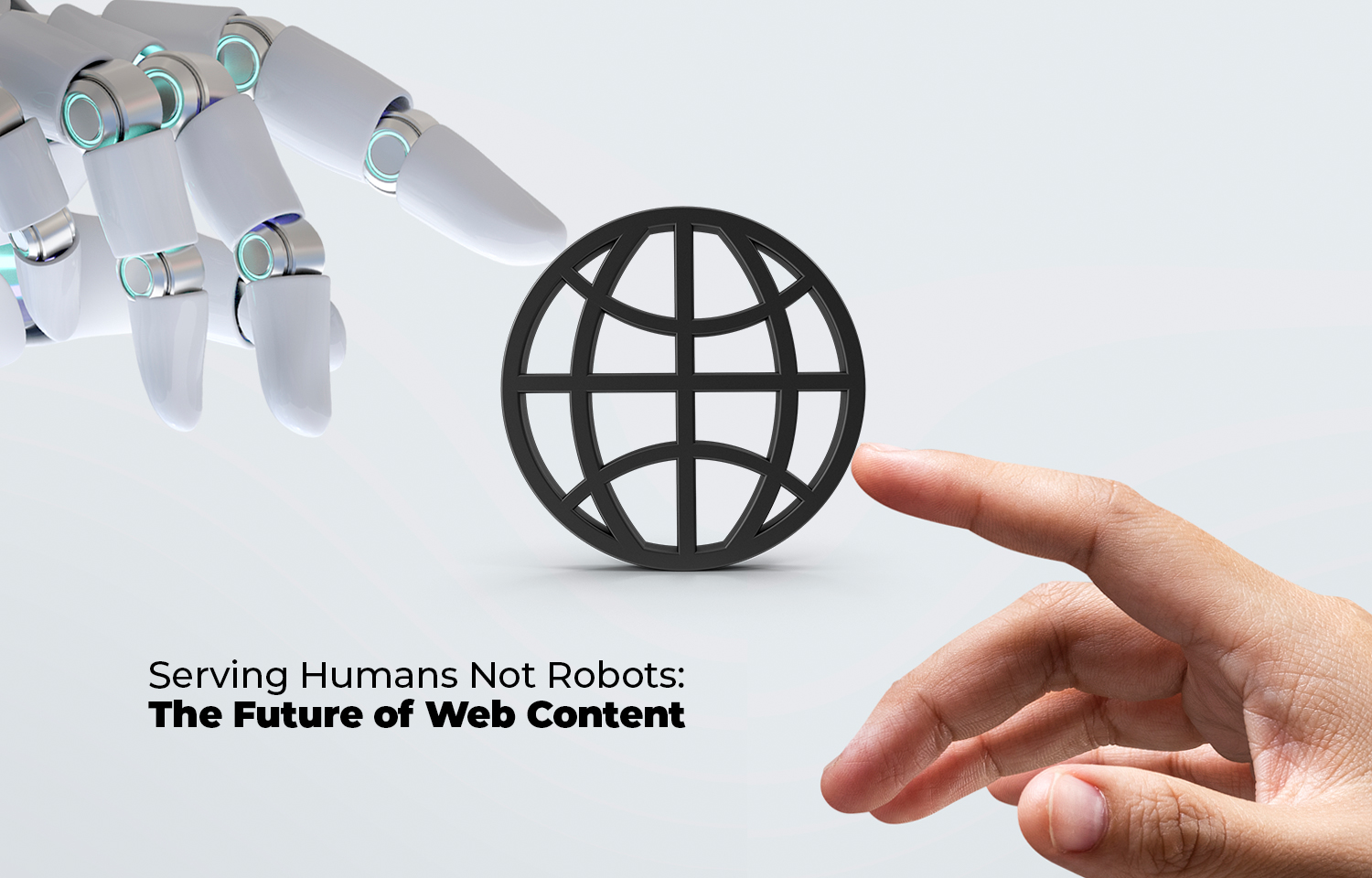
Serving Humans Not Robots: The Future of Web Content
In the bustling landscape of the World Wide Web, there’s an unseen battle: the race to the top of search engine results. In pursuing that elusive #1 spot, many websites have inadvertently shifted their focus from their most important audience – real human beings – to appeasing the constantly changing algorithms of search engine spiders.
It’s understandable why this shift has occurred. Visibility in the digital age often translates to profitability. But the strategy of pandering solely to search engine robots is not just short-sighted; it’s fundamentally flawed.
The Immediate Gratification Trap
Designing content for search engine spiders can lead to immediate gains in rankings, providing that sweet, ephemeral taste of success. And while algorithms do reward well-structured sites and keyword-rich content, they are sophisticated enough to recognise and prioritise genuinely helpful and engaging material. In this race, the hare (tailoring their sites primarily for robots) may have an early lead, but the tortoise (those focusing on real user needs) will ultimately prevail.
Remembering the Human Touch
Humans are discerning, emotional and complex. We yearn for stories that move us, for information that aids us and for content that connects with our daily lives. A robot might not discern between a deeply engaging article and a keyword-stuffed one, but a human can. And it’s that human, after all, whom businesses want as customers, subscribers, or fans.
Creating an experience tailored for human users leads to longer dwell times, increased engagement, and more meaningful interactions. A better user experience drives loyalty and word-of-mouth marketing, which are invaluable in the digital age.
Search Engines are Evolving
Historically, websites could ‘game’ search engines with tactics like keyword stuffing or invisible text. But, as we’ve seen repeatedly, search giants like Google are increasingly sophisticated in their pursuit of rewarding quality.
Their algorithms are constantly refined, with an ever-growing emphasis on user experience. Factors like page dwell time, bounce rate, and social shares are now significant indicators of content quality.
Thus, even if a website temporarily enjoys high rankings from robot-centric tactics, it’s only time before algorithms catch up and rectify the rankings.
A Sustainable Future
The internet is no longer in its infancy. Users are savvy, and they’re inundated with choices. To stand out and sustain in this vast digital ocean, websites must provide genuine value. This means content that’s original, insightful, and directly tailored to the needs and desires of its audience.
Those who chase the ever-changing rules of search engine algorithms will find themselves in a constant game of catch-up. But those who focus on the evergreen principles of quality, relevance, and user-centricity will find themselves not only atop search engine rankings but, more importantly, in the hearts and minds of their users.
In conclusion, remember to put humans first in the race for online visibility and relevance. After all, in the grand tapestry of the digital realm, it’s the human touch that leaves the most indelible mark.

Article by Dave
Related posts
Striking the Balance in Software Development
When it comes to software development, there’s always that internal tug-of-war between under-engin
Why Taking Time to Explain Makes All the Difference
Why bother making a post to explain something that seems so basic? Who even cares? Surprisingly, a l
Why We Sometimes Make Coding Harder (and How to Stop)
Let’s be honest—software development is complicated. It’s just the nature of the job. Bugs pop



